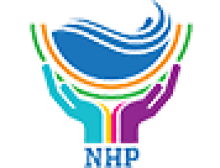National Institute of Hydrology (NIH) is participating in NHP as one of the central agencies. There are a total of 47 implementing agencies (IAs) including eight central agencies (MoWR, RD&GR; CWC, CGWB, NIH, CPCB, SoI, NRSC and CWPRS), 37 state-level agencies and two river basin organizations (RBO) under NHP. Keeping in view the NHP objectives and initiatives, NIH is involved in the following activities of NHP:
- Demand driven research through Purpose Driven Studies (PDS)
- Training and Capacity building
- Centre of Excellence for Hydrological modeling
- Decision Support System (DSS)
Purpose Driven Studies (PDS)
One of the main focuses of NHP is Research and Development (R & D) in the form of Purpose Driven Studies (PDSs). Considering the peculiarities and large variation in the nature of problems associated with water resources planning and development, the issues involved in research related to particular region and specific project, the NHP is sponsoring research proposals of applied nature along with basic and action research. The research activities of such nature are implemented through R & D Section of NHP which is located at NIH. PDSs are related to specific issues of water management problems identified within the area of operation of implementing agencies and of public concern. The main role of R&D Section is to coordinate these research activities and to review and monitor the progress of the PDSs. In the first R&D session, 26 project proposals were presented by IAs and these are in the process of approval/revision.
Training and Capacity Building
NIH has been assigned with the important task of planning and organizing the training programmes for capacity building of the IAs under NHP. The main objective of the training and capacity building activities is to create, enhance and develop capacity in IAs at desired level to plan, implement and operate water resources schemes. The NHP training section is involved in identifying the training needs and preparation of annual training programs in relevant areas in consultation with various implementing agencies. Four training courses have been oragnised in different areas of hydrology and water resources under NHP.
Centre of Excellence for Hydrologic Modelling (CEHM)
Developing a “Centre of Excellence for Hydrologic Modelling” and giving leadership to the Country in hydrologic modelling services is one of the four major tasks assigned to NIH under the NHP. We plan this centre to become knowledge repositories in hydrological processes understanding, advanced tools and techniques, advancement taking place from time-to time globally on hydrological research, tools and techniques to respond to the India’s hydrologic modelling services. The hydrologic modelling services strive to make India self reliance in water management tools and techniques to help decision making on movement, availability, fate and quantity and quality management of both surface and sub-surface water. Three studies on application of different models have been initiated in CEHM. A status report on the Hydrologic modelling has been prepared.
Decision Support System (DSS) Studies
Decision Support System (DSS) component is essential for up-gradation and maintenance of DSS software developed and implemented in the pilot basins of nine state agencies during HP-II project. New applications of DSS in other basins have been considered in association with states data centers and their planning and design departments. These activities would ensure the sustainability of DSS software in state implementing agencies and its utilization for planning various water resources activities.




 राष्ट्रीय जलविज्ञान संस्थान, रुड़की, भारत
राष्ट्रीय जलविज्ञान संस्थान, रुड़की, भारत



